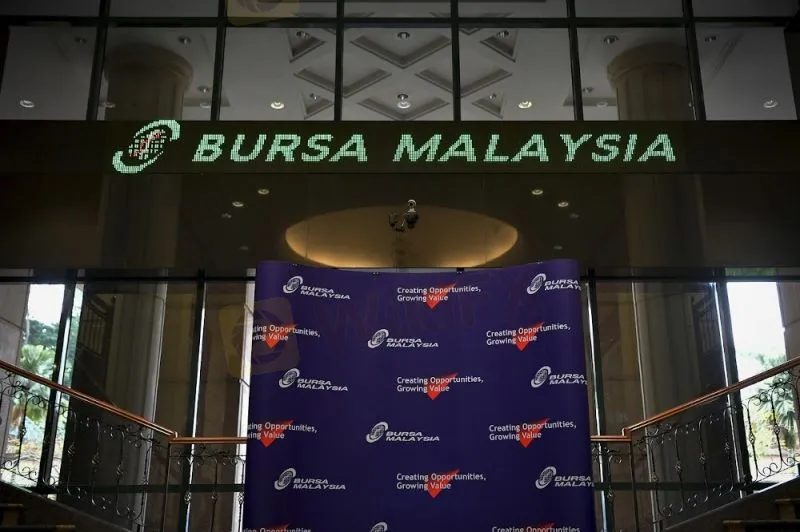Bursa Malaysia rebounds to open higher
abstrak:At 9:10 am, the FTSE Bursa Malaysia KLCI (FBM KLCI) experienced a gain of 2.14 points, reaching 1,443.99 from yesterday's closing of 1,441.85. The primary index commenced with a 0.64-point increase, opening at 1,442.49.

KUALA LUMPUR: Bursa Malaysia initiated the trading session on Friday with an upward trajectory, displaying resilience in contrast to Wall Street's previous night's downturn, buoyed by renewed purchasing enthusiasm.
As of 9:15 am, the FTSE Bursa Malaysia KLCI (FBM KLCI) advanced by 1.89 points to reach 1,443.74, a climb from the previous day's closing figure of 1,441.85.
The primary index commenced the session with a gain of 0.64 points, opening at 1,442.49.
In the wider market context, there were 191 gainers compared to 98 losers, while 221 counters remained unchanged.
The Energy index registered a 0.75 percent increase, reaching 831.05 points, the FBM Asian Palm Oil (USD) climbed by 0.44 percent to 10,749.94 points, and the Healthcare index advanced by 0.39 percent to 1,740.17 points.
Overall turnover amounted to 247.35 million units, valued at RM63.69 million.
Despite some eleventh-hour bargain hunting that lifted the index from its daily low, the FBM KLCI concluded the session with a marginal dip, according to Thong Pak Leng, the Vice President of Equity Research at Rakuten Trade Sdn Bhd.
Leng noted that regional performance had been subdued due to the impact of the Fitch downgrade, prompting certain immediate reactions.
Given these factors, Leng expressed the belief that buying activity could see a resurgence today, driven by the continued inflow of foreign funds into the region.
Consequently, Thong anticipates that the index will maintain a range between 1,435 and 1,445 today, with renewed investor interest focused on the banking sector.
Regarding Wall Street's recent performance, Thong observed a marginal decline, attributing it to traders' contemplation of rising treasury yields in conjunction with pending job data scheduled for release later in the day.
Furthermore, Thong noted that the initial reactionary impact of Fitch's downgrade appears to have subsided, as evidenced by the Dow Jones Industrial Average (DJI) shedding 67 points and the Nasdaq experiencing a 14-point drop. Notably, the US 10-year yield surged to a year-to-date (YTD) high at 4.178 percent.
Meanwhile, Thong highlighted that the Hang Seng Index (HSI) in Hong Kong dipped below the 20,000 mark once again due to a downgrade of Chinese companies by Morgan Stanley.

Broker ng WikiFX
Exchange Rate

